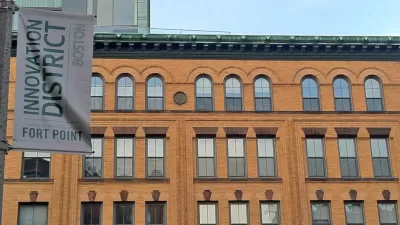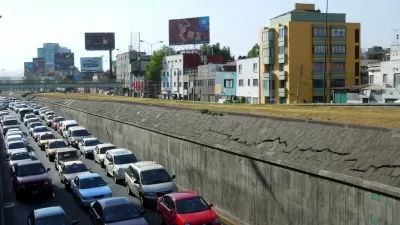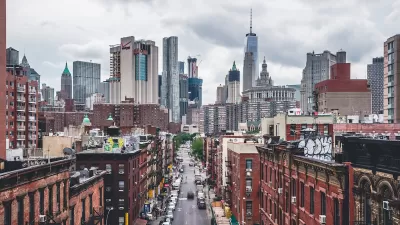Recent commenters have described cities as the locus for a new type of liberalism that benefits a broader swath of demographics. Dissenters wonder whether certain progressive cities, enabled by privilege, are merely drivers of inequality.

Standing in opposition to the "declining ability of the American political order to deliver a steadily rising standard of living to the vast middle and working classes," says Thomas B, Edsall, are mayors from New York to Seattle "committed to deploying the power of city government and aggressive wage and tax policies to attack inequality and revive social and economic mobility." Mayors of American cities may be, in fact, "charting a new course for American liberalism."
The argument follows that of Harold Meyerson, author of "The Revolt of the Cities," which provides the inspiration for Edsall's editorial/review. "Meyerson’s list of new mayors charting the new liberalism includes (but is not limited to) Pittsburgh’s Bill Peduto, Minneapolis’s Betsy Hodges, Seattle’s Ed Murray, Boston’s Martin Walsh, Santa Fe’s Javier Gonzales and, of course, New York City’s Bill de Blasio."
Edsall, however, notes a few reasons to be cautious about the power of cities. "First and foremost, a number of the cities Meyerson points to have exceptional, built-in advantages: major research universities; financial and high-tech corporate centers; substantial and strong artistic and intellectual communities. Pittsburgh, for example, has Carnegie Mellon, metropolitan Boston has Harvard and M.I.T., Seattle has Microsoft and Amazon, and New York has its own varied, almost endless resources."
The question remains, according to Edsall "whether the policies and programs developed in the nation’s thriving urban core will prove to be broadly applicable."
FULL STORY: Will Liberal Cities Leave the Rest of America Behind?

Maui's Vacation Rental Debate Turns Ugly
Verbal attacks, misinformation campaigns and fistfights plague a high-stakes debate to convert thousands of vacation rentals into long-term housing.

Planetizen Federal Action Tracker
A weekly monitor of how Trump’s orders and actions are impacting planners and planning in America.

San Francisco Suspends Traffic Calming Amidst Record Deaths
Citing “a challenging fiscal landscape,” the city will cease the program on the heels of 42 traffic deaths, including 24 pedestrians.

Defunct Pittsburgh Power Plant to Become Residential Tower
A decommissioned steam heat plant will be redeveloped into almost 100 affordable housing units.

Trump Prompts Restructuring of Transportation Research Board in “Unprecedented Overreach”
The TRB has eliminated more than half of its committees including those focused on climate, equity, and cities.

Amtrak Rolls Out New Orleans to Alabama “Mardi Gras” Train
The new service will operate morning and evening departures between Mobile and New Orleans.
Urban Design for Planners 1: Software Tools
This six-course series explores essential urban design concepts using open source software and equips planners with the tools they need to participate fully in the urban design process.
Planning for Universal Design
Learn the tools for implementing Universal Design in planning regulations.
Heyer Gruel & Associates PA
JM Goldson LLC
Custer County Colorado
City of Camden Redevelopment Agency
City of Astoria
Transportation Research & Education Center (TREC) at Portland State University
Jefferson Parish Government
Camden Redevelopment Agency
City of Claremont





























